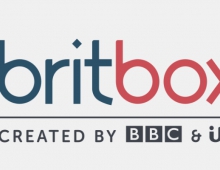
BBC to offer downloadable TV programs
BBC New Media has announced the next phase in the development of
the BBC's interactive Media Player (iMP): an extensive three month content trial that will begin
in September 2005.
iMP offers UK viewers the chance to catch up on TV and radio programmes they may have
missed for up to seven days after they have been broadcast, using the internet to legally
download programmes to their home computers.
A technical trial took place in Summer 2004 with a limited number of participants and a small amount of rights-cleared programmes to test the concept of using peer-to-peer technology and digital rights management (DRM) to protect rights holders.
As part of the next phase of iMP's development, the BBC will now open up more of its radio and TV schedule - around 190 hours of TV programmes and 310 hours of radio programmes, as well as local programming and rights-cleared feature films.
Five thousand people - from all over the UK - will take part in the pilot. They will be able to search for programmes they want to watch, filter programmes by channel, select subtitles and, in the case of some series, to collect and watch episodes that they may otherwise have missed.
The BBC will be working with Siemens Business Services, BBC Broadcast and Kontiki Inc. as part of the content trial. They will assist the BBC with the technical and playout elements of the service.
Ashley Highfield, BBC Director of New Media & Technology, says: "iMP could just be the iTunes for the broadcast industry, enabling our audience to access our TV and radio programmes on their terms - anytime, any place, any how - Martini Media.
Broadband users who would like to be considered for a place on the pilot should send an e-mail to imptrial@bbc.co.uk including their name, contact details, age and postcode.
iMP is based on the BBC's highly successful RadioPlayer, which lets viewers listen again to a selection of the BBC's radio programmes for up to seven days after broadcast.
The BBC's interactive media player (iMP) is a new application in development which will allow users to download tv and radio programmes from bbc.co.uk to their PC or laptop and watch or listen to them for seven days after the transmission date.
The pilot will use digital rights management software to delete programmes seven days after the programme has aired on TV and users will no longer be able to watch it. DRM also prevents users emailing the files to other computer users or sharing it via disc.
BBC Radio is to extend its own trial of downloading by adding up to 20 radio shows for podcasting.
The iMP pilot will use peer to peer distribution technology (P2P) to distributes its audio visual content effectively and Geo-IP technology to restrict iMP to UK internet users only.
The pilot will run from September to December 2005 and will be used to assess the demand of particular types of programmes and determine whether iMP has an impact on the commercial market. This will assist the BBC Governors in evaluating its public value.
A technical trial took place in Summer 2004 with a limited number of participants and a small amount of rights-cleared programmes to test the concept of using peer-to-peer technology and digital rights management (DRM) to protect rights holders.
As part of the next phase of iMP's development, the BBC will now open up more of its radio and TV schedule - around 190 hours of TV programmes and 310 hours of radio programmes, as well as local programming and rights-cleared feature films.
Five thousand people - from all over the UK - will take part in the pilot. They will be able to search for programmes they want to watch, filter programmes by channel, select subtitles and, in the case of some series, to collect and watch episodes that they may otherwise have missed.
The BBC will be working with Siemens Business Services, BBC Broadcast and Kontiki Inc. as part of the content trial. They will assist the BBC with the technical and playout elements of the service.
Ashley Highfield, BBC Director of New Media & Technology, says: "iMP could just be the iTunes for the broadcast industry, enabling our audience to access our TV and radio programmes on their terms - anytime, any place, any how - Martini Media.
Broadband users who would like to be considered for a place on the pilot should send an e-mail to imptrial@bbc.co.uk including their name, contact details, age and postcode.
iMP is based on the BBC's highly successful RadioPlayer, which lets viewers listen again to a selection of the BBC's radio programmes for up to seven days after broadcast.
The BBC's interactive media player (iMP) is a new application in development which will allow users to download tv and radio programmes from bbc.co.uk to their PC or laptop and watch or listen to them for seven days after the transmission date.
The pilot will use digital rights management software to delete programmes seven days after the programme has aired on TV and users will no longer be able to watch it. DRM also prevents users emailing the files to other computer users or sharing it via disc.
BBC Radio is to extend its own trial of downloading by adding up to 20 radio shows for podcasting.
The iMP pilot will use peer to peer distribution technology (P2P) to distributes its audio visual content effectively and Geo-IP technology to restrict iMP to UK internet users only.
The pilot will run from September to December 2005 and will be used to assess the demand of particular types of programmes and determine whether iMP has an impact on the commercial market. This will assist the BBC Governors in evaluating its public value.
















